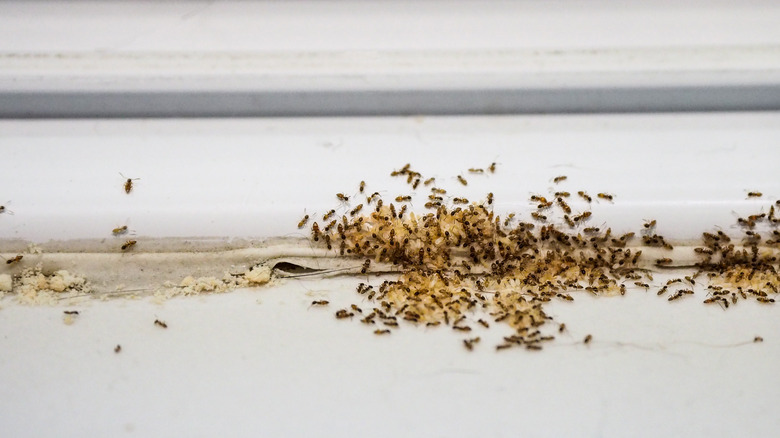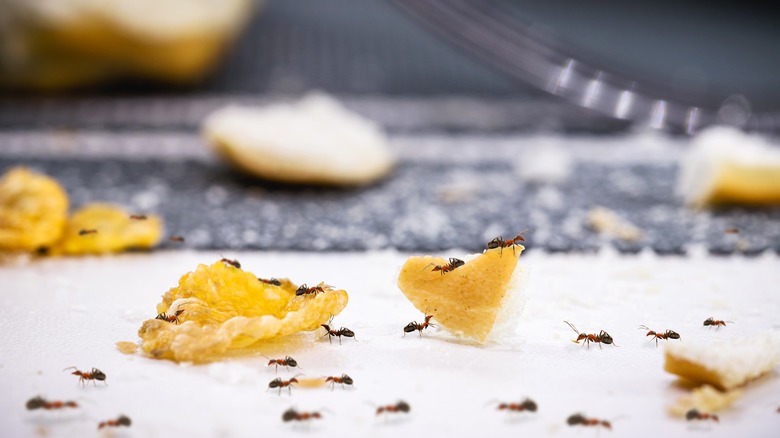Why You Should Reconsider This Cornmeal Trick For Repelling Ants
The cornmeal method for ant control has been widely circulated as an inexpensive, non-toxic way to deal with ant infestations. The idea is that ants will eat the cornmeal, be unable to digest it, and subsequently die, eliminating the colony over time. While this sounds appealing — especially as a natural alternative to chemical pesticides — there's growing evidence that this approach may not be as effective as people believe.
Firstly, ants have a varied diet that changes based on their species, the time of year, and the specific needs of their colony. Some ants may indeed carry cornmeal back to the nest, but that doesn't guarantee they'll consume it. Many ant species have evolved to be selective about their food intake, often avoiding substances that do not provide immediate energy or sustenance. So, while cornmeal might get transported into the nest, it is unlikely to be the silver bullet many assume.
Another issue is that not all ants react to the same types of food in the same way. Carpenter ants, for example, are more interested in protein sources, whereas sugar ants prefer sweet substances. This diversity in dietary preference means cornmeal might not even attract the very ants you are trying to eliminate. Some ants can even learn to evade and avoid food that they know could potentially harm them and their colony.
There are better alternatives than cornmeal to consider
If cornmeal isn't as effective as once thought, what can be done to effectively repel ants? There are several proven methods that outperform cornmeal, both in terms of repelling ants and eradicating them from your home or garden. One alternative that has shown consistent results is black pepper. Its strong scent irritates ants, discouraging them from crossing areas where it is sprinkled. Not only is it more immediate than the cornmeal approach, but it also targets ants in a way that directly interferes with their movement, making it harder for them to build and maintain trails.
Another well-tested method is using dish soap mixed with water. This simple solution works by breaking down the waxy coating on an ant's exoskeleton, causing it to dehydrate and die. When applied directly to ant hills, this method can effectively destroy entire colonies. It is particularly useful in outdoor settings, where ant colonies may spread quickly and can be harder to monitor.
Ultimately, the cornmeal trick persists because it feels like an easy, low-maintenance solution, but its effectiveness is highly situational and often overestimated. Ants, like fire ants and others with complex and sometimes dangerous behaviors, are unlikely to be eliminated by such basic tactics. For those looking for a more comprehensive approach to ant control, using black pepper, dish soap, or other proven methods will offer better results without the prolonged waiting period or the uncertainty that comes with relying on cornmeal.

